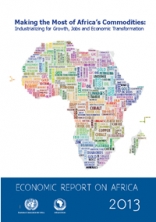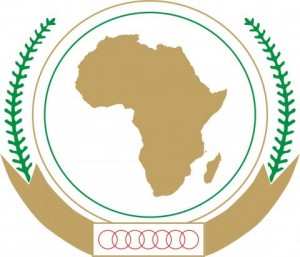At IESE Business School, I am increasingly seeing students form Africa in our programs in New York and Barcelona and have had the opportunity to lecture at Strathmore Business School in Nairobi and also in Cape town.
Things are moving in Africa!
 Students from Angola, Equatorial Guinea, Cote d’Ivoire, Kenya and Nigeria all tell similar stories of exciting times in business with infrastructure to set up, brands to build, and consumers to reach!
Students from Angola, Equatorial Guinea, Cote d’Ivoire, Kenya and Nigeria all tell similar stories of exciting times in business with infrastructure to set up, brands to build, and consumers to reach!
IESE Business School is actively engaged in Africa working with Business schools in the region bringing African students to our school and sending our students there.
Africa and the Long Boom
 What happens in Africa will be central to achieving Peter Shwartz’s long boom which was discussed in last week’s post and according to the United Nations Economic Commission for Africa (UNECA), the continent is at “a critical juncture in its development trajectory” in its 2013 report on the African economy.
What happens in Africa will be central to achieving Peter Shwartz’s long boom which was discussed in last week’s post and according to the United Nations Economic Commission for Africa (UNECA), the continent is at “a critical juncture in its development trajectory” in its 2013 report on the African economy.
The overarching story line in this report and others is that after the “lost decades” of the 1980s and 1990s, Africa is going through a remarkable phase of economic growth largely fueled by a boom in commodity prices and demand.
The challenge for the different african countries is to take advantage of the commodity demand to develop real economic growth and prosperity for their people. This is, of course, a difficult task.
In their account of the China Development Bank (CDB), Bloomberg’s Henry Sanderson and Michael Forsythe, document how the Chinese Government is channelling huge amounts of money to African nations in exchange for long term contracts for raw materials and a commitment to buy Chinese telecommunications equipment and build needed infrastructure using Chinese companies and Chinese construction equipment.
Last year, the CDB approved a special loan of US$ 1 Billion targeted at African SMEs. In my own experience in Kenya, entrepreneurs face a myriad of opportunities to tap into the rising middle class as well as innovative ideas at the so called bottom of the pyramid but have had difficulties getting financing.
The benchmark interest rates in Kenya has gone down from 18% last year to 8.5% last month and is currently set at 12% by the Nigerian central bank but is down to 3.5% in Cote d’Ivoire!
Politics and the Environment
Besides finance, the other huge issues limiting the continent’s progress are local and regional politics and the environment.
At the local level, while some countries are moving forward, many are still deeply affected by the lingering aspects of Africa’s rapid decolonization and rival ethnicities in the body politic.
On a continental level, the 54 members of the African Union are slowly coming together but face a complex agenda related to security and other continental issues.
To make things even more complex, the continent is heavily exposed to the impacts of climate change and face a host of potentially more urgent sustainability problems such as access to water and sanitation.
The time to stake out competitive positions in China was probably 20 years ago! The time for Africa might be now.



